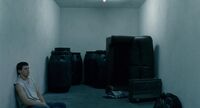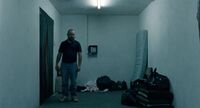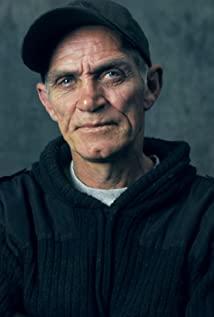I prefer vague names like "Snowtown" rather than an extra note. Because the film itself is shrouded in a kind of fog. It's been a long time since I watched the movie, and it's even more and more blurred. What the hell happened in this town? What happened to the people in town? The smoke is like Silent Hill.
At the beginning of the film, the cool and percussive soundtrack, with its natural frequency, is like the sound of knocking on the door, which makes people palpitate. The speeding field is endless. Under the gray sky, the monologue that suddenly broke in opened the door to another world. This is a madman's rant.
What's unique about the film, however, is that it doesn't care how a person becomes insane. You won't see a psychological drama like "What's Wrong with Kevin", which completely exposes a person's "growth" trajectory, and creates a dignified, even a little "narcissistic" atmosphere through the vision of a fixed role. "Snow Town" doesn't care about the accumulation of some events, watching how a character becomes a madman. But basically no story to tell.
To not tell a story is to let some people walk in inexplicably. There are too many unknown characters filling the entire film. This also became its unfriendly side. At the same time, the director switched scenes at will with a non-cut look. You'll see a character's clothes suddenly change, only to realize that maybe a few days have passed. The time and space without a sense of order can be used to describe this movie, which is actually a forgotten place. But ironically, it's called the "Sunshine Project" for those with less fortunate families. So it's not hard to imagine why some people come and go without a trace, always cluttering together, and drug addicts, gays and lesbians are the legal residents here—a haven for run-down families. Also, the dialogue sometimes doesn't know who sent it, and characters are absent from the screen.
Not telling a story makes some people disappear without knowing it. The strange uncle, who had played the role of father, was reprimanded loudly by his mother for exposing his unfriendly side and expelled from the family. A man from nowhere joins the family, and Yu plays the role of a father again, driving the strange uncle out of town by bad means. The strange uncle has since disappeared. My mother called the police because of my uncle's fault. However, the words of the police are also absent in this film. I saw the police car quietly and silently leave the town, as if it was not disturbed by power. The mother's condition has been very poor, and she has lost her voice in the family. You will no longer see the sudden hysteria in the empty town. Unknowingly disappeared, making the film more harmonious. Because it doesn't need to show how the victims suffered misfortune. A tape was left with each victim, and the words in it seemed to become a piece of truth. Like someone in the movie said, no one would notice their departure. These tapes also seem to show the director's control.
No storytelling, throw away moral judgment. The few violent scenes do not show a series of modus operandi, do not involve the police to investigate, do not portray the role of a serial killer, and do not have a fixed ending. It was thoroughly artistic. It creates a desire to explore rather than applaud established moral codes. It is not to look down on the whole process of events from the perspective of God. It's a movie that makes people care more about Snowtown than Murders.
View more about The Snowtown Murders reviews








